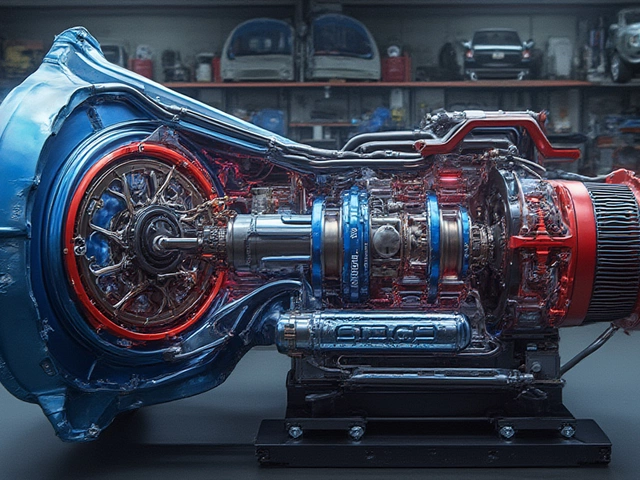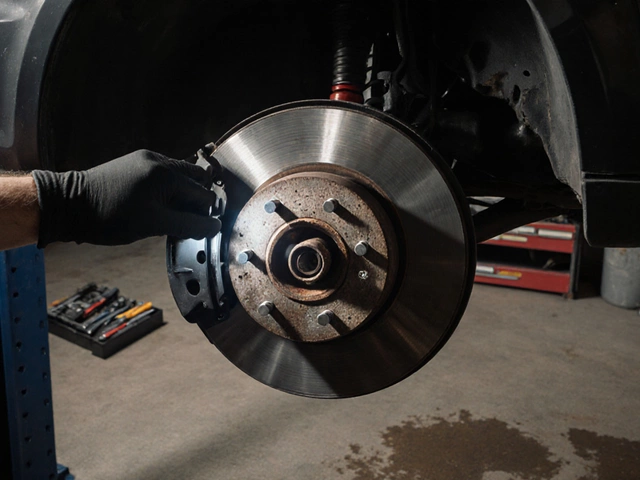Ever wonder if your trusty motor gives you a heads-up when it's time for an oil change? Well, thanks to modern technology, many cars these days do just that. If you’ve got a car built in the last decade, you might notice an alert popping up on the dashboard, telling you it's time for a fresh dose of engine oil.
These systems are more than just fancy gadgets. They’re designed to keep track of your oil’s condition, factoring in how you drive and the mileage. Cool, right? But how do they work, and why should you pay attention to them? Buckle up as we dive into the nuts and bolts of these handy alerts. Trust me, knowing this stuff can save you a lot of headaches down the road!
- Understanding Car Alerts
- How the System Works
- Why You Shouldn't Ignore Alerts
- Tips for Keeping Your Engine in Check
Understanding Car Alerts
Okay, so modern cars are pretty smart. Gone are the days of keeping a note in the glove box to remind yourself of the next oil change. Most newer vehicles have systems that alert you when it's time to swap out the engine oil. This isn't just a reminder based on miles driven; it’s smarter than that.
How Do These Alerts Work?
Cars today are equipped with oil life monitoring systems. They don't just count the miles; they actually analyze driving habits and engine conditions. For example, frequent stop-and-go driving or hauling heavy loads can wear out oil faster than highway cruising. These systems use sensors to track these conditions and warn you when you’ve pushed the engine oil too far.
Types of Alerts You Might See
So, what kind of alerts are we talking about? Let me break it down for you:
- Oil Life Indicator: This one gives you a percentage, like "30% oil life remaining." It’s a great way to track how close you are to needing a change.
- Check Engine Light: Not always about the oil, but in some cars, this can illuminate when there's a major issue with your oil system.
- Maintenance Reminder: A friendly nudge from your car's system to remind you it’s time for scheduled upkeep, which includes oil changes.
What If You Ignore the Alerts?
Listen, these warnings aren’t there just to annoy you. Ignoring them can lead to bigger problems. Old or dirty oil doesn’t lubricate well, and it can cause parts to wear out faster, potentially leading to messier and more costly repairs. Trust the tech. It knows what it's talking about.
| Year | Percentage of Cars with Alerts |
|---|---|
| 2015 | 30% |
| 2020 | 60% |
| 2025 | 85% |
Nowadays, a whopping 85% of new cars come with these alert systems. So if your car can do the brain work for you, let it! It could be the difference between a smooth ride and a day stuck at the mechanic’s.
How the System Works
Alright, so let’s get technical for a sec. Many latest models come equipped with oil life monitoring systems. These aren’t just digital gimmicks; they’re pretty smart. Your car’s computer keeps tabs on how you drive and uses that to decide when your oil change is due. Imagine it like having a mechanic riding shotgun, keeping your engine in check.
What Does the System Monitor?
It's not just about ticking off a mileage counter. The system checks a variety of factors like engine revolutions, operating temperature, and even your driving habits. Stop-and-go traffic, frequent short trips, and high-speed driving can affect the oil, and the system takes all this into account.
Algorithm at Work
There’s something called an algorithm (fancy word for a mathematical rule) running the show in the background. It calculates when your engine oil might lose its effectiveness long before you’d notice any signs. And that dashboard alert? It's essentially the system waving a red flag at you to take action.
Oil Change Indicators
The indicator, usually a light or message, pops up when it's time for a vehicle alert. Some cars will even tell you how much oil life you have left as a percentage, giving you a heads-up to start planning for that visit to the garage.
Using the Owner's Manual
If you're scratching your head wondering how to check your car's alert system, the owner's manual is your best friend. It should have a section explaining what each light means and how the engine oil system works specifically for your car model.
| Driving Condition | Impact on Oil Life |
|---|---|
| Frequent short trips | Decreases |
| Highway driving | Increases |
| Extreme temperatures | Decreases |
Bottom line: don’t ignore that light on your dashboard. The oil life monitoring system is there to help keep your car running smoothly. Regular maintenance in line with your car’s alerts can save you from bigger, costlier problems down the line.

Why You Shouldn't Ignore Alerts
Alright, so your car's telling you it's time for an oil change, but you're thinking about putting it off? It's easy to brush it aside, especially when life gets busy, but ignoring this alert can be a risky move. Here's why.
Risk of Engine Damage
The warning from your car isn't just for show; it's a timely reminder. Ignoring it means your engine oil could become too dirty or thin, losing its ability to lubricate effectively. This can lead to increased friction, wear, and even overheating, causing serious damage. Repairing these damages can be way pricier than just getting that oil change done!
Fuel Efficiency Drops
Did you know that fresh oil plays a role in keeping your car fuel-efficient? Dirty oil makes the engine work harder, burning more fuel than necessary. That means more visits to the pump and more pounds out of your wallet.
Impact on Longevity
Regular oil changes don't just keep things running smoothly now. They also ensure that your car will last longer on the road. A neglected engine is an engine that's shortening its own lifespan.
Warranty Concerns
Here's a shocker: skipping out on those oil change alerts could even void your vehicle's warranty. Many car manufacturers require proof of regular maintenance checks, and ignoring them could leave you footing the bill for repairs that should have been covered.
Safety First
Driving with an overdue oil change can affect the overall performance of your vehicle. Your brakes might not respond as well, and handling might feel sluggish, putting not just your car, but also your safety at risk.
| Factor | Consequence |
|---|---|
| Ignoring Alerts | Increased Expenses |
| Dirty Oil | Engine Damage |
| Frequent Oil Change | Longer Car Lifespan |
So, the next time you see that little alert pop up, view it as your car's friendly nudge to keep things in tip-top shape. A quick oil change could save you a lot of hassle and cash in the future.
Tips for Keeping Your Engine in Check
Maintaining your car’s engine is like looking after your own health; the better you do it, the fewer problems you’ll face on the road. So let's look at some straightforward tips to keep your engine running smoothly.
Regular Oil Change
Sure, it's obvious, but you’d be surprised how often folks dismiss regular oil changes. Fresh engine oil is crucial for keeping the different parts of your engine lubricated and running efficiently. Check your manual and follow the recommended schedule, or just listen to the alerts your car provides.
Check Your Oil Level
Don't wait for a warning light. Every few weeks, take a moment to check your oil dipstick. The process is simple but tells you a lot about your car’s health. If the oil looks dark and gritty or is below the minimum mark, it's time to think about changing it. This could prevent long-term damage to your engine.
Keep an Eye on Other Fluids
While oil is essential, don’t forget about coolant and brake fluid. They’re equally vital. Regularly check and top them up if needed. Your vehicle manual will guide you on how often to do this.
Listen and Look
Pay attention to any unusual sounds coming from under the hood. Strange noises might indicate a problem with the car maintenance, and it’s better to catch them early. Also, be mindful of warning lights on your dashboard besides the oil alert. They’re not just for decoration!
Follow the Maintenance Schedule
Stick to the car maintenance schedule as if it were a doctor's prescription. It’s designed to keep your vehicle running in top shape. Sure, it might be a bit boring to stick to a schedule, but trust me, it's worth it.
There’s no magic to keeping your engine in check, just a bit of attention and regular care. It's all about the basics, really. So keep these tips handy, and your car will be in its prime for many miles to come!






